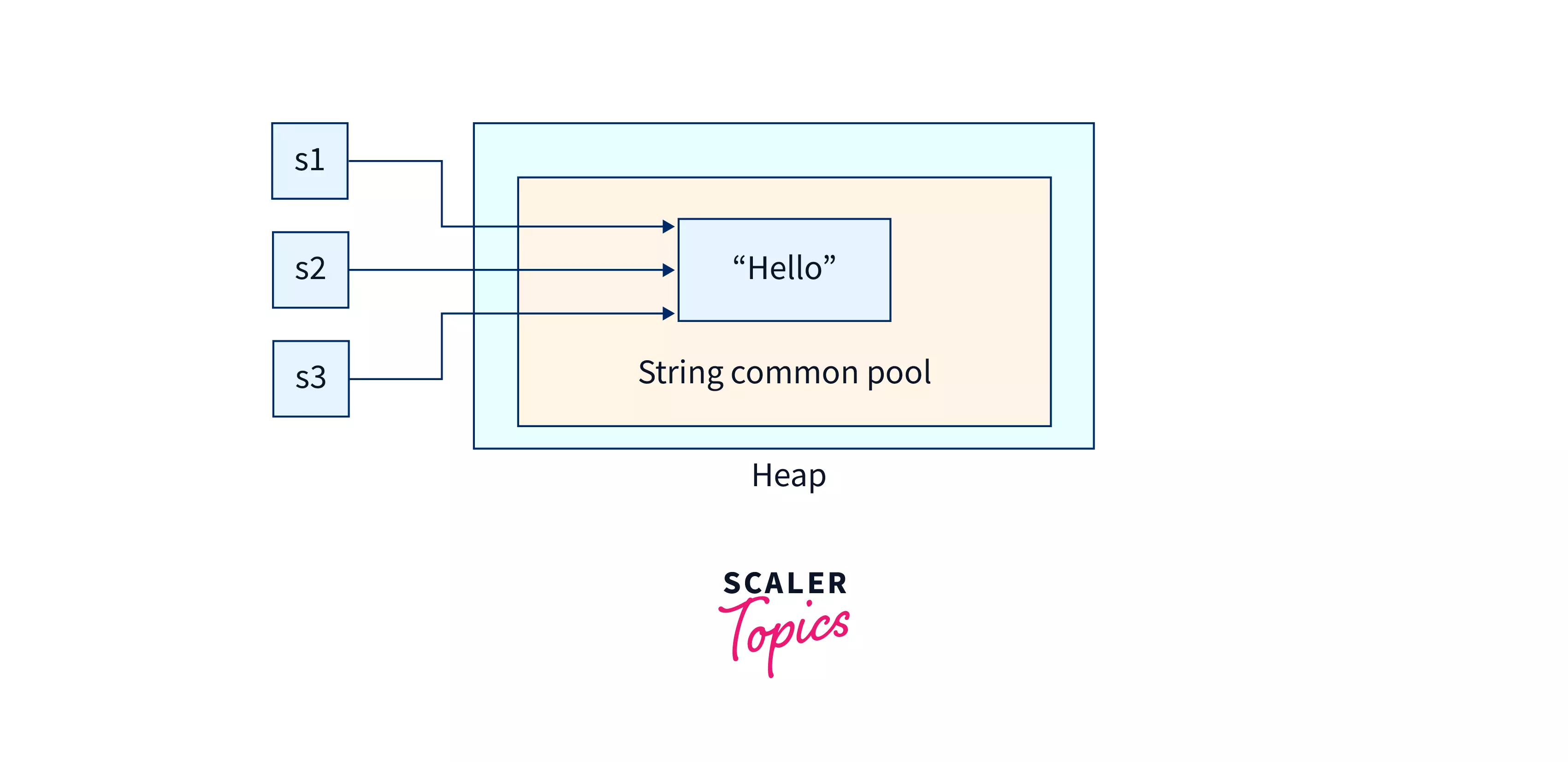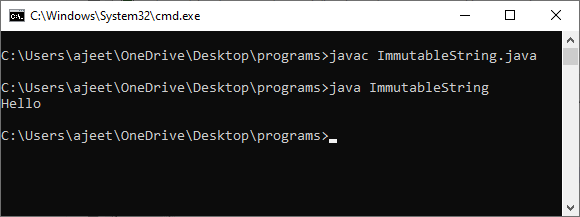Checking Out the Advantages of Immutable Strings in Modern Programming Paradigms
In the realm of modern shows paradigms, the principle of immutable strings stands as a foundation of robust software growth. By embracing unalterable strings, designers can guarantee enhanced data integrity, improved thread safety, simplified debugging processes, increased safety and security procedures, and effective performance optimization.
Improved Data Honesty

By preventing the alteration of string things, immutability gets rid of the danger of unintended adjustments to the information they hold. This not only boosts the security of the info yet likewise boosts the reliability of the code that relies upon these strings.
Immutability additionally sustains much safer multithreading settings, as concurrent access to immutable strings does not posture the threat of data corruption with simultaneous alterations. This property simplifies the procedure of dealing with strings in parallel programming circumstances.
In essence, immutability acts as a safety shield around the data stored within strings, improving their honesty by making sure that when specified, their values stay unmodified throughout the program's implementation.

Enhanced Thread Safety And Security
Immutable strings enhance the thread security of programs by making sure that when a string item is produced, its worth can not be modified. This residential or commercial property eliminates the risk of simultaneous strings attempting to modify the same string concurrently, which could lead to information corruption or irregular states in the program - Why are strings immutable in Java?. In a multi-threaded environment, where several strings access and manipulate information at the same time, the immutability of strings gives a level of safety and security by guaranteeing that the data stays unmodified throughout its lifecycle
Streamlined Debugging Processes
Given the enhanced thread safety assisted in by unalterable strings, a substantial advantage develops in the realm of simplified debugging processes. Immutable strings, when created, can not be changed, making it simpler to trace the flow of information and identify the resource of pests in a program. This immutability makes certain that strings continue to be constant throughout the execution of the program, decreasing the chance of unforeseen adjustments that could cause mistakes.
When debugging with mutable strings, designers commonly come across concerns where a string's value is changed inadvertently, making it testing to determine the source of a pest. Nevertheless, with immutable strings, the data stays unchanged, allowing designers to concentrate on analyzing the real reasoning of the code rather than tracking down where and when a string was modified incorrectly.
Additionally, immutable strings simplify the debugging process by making it possible for simpler recreation of insects. Because unalterable strings do not change state, programmers can recreate and examine bugs better, causing quicker recognition and resolution of problems within the codebase. This structured debugging process ultimately adds to greater software application high quality and improved total growth effectiveness.

Increased Safety Measures
Enhancing data protection and strengthening system stability, the utilization of unalterable strings in software application applications contributes dramatically to increased safety measures. Immutable strings also play an essential duty in avoiding common security vulnerabilities such as barrier overflows and SQL shot strikes, as efforts to control string information at runtime are inherently restricted.
In addition, the immutability of strings boosts the predictability of program actions, making it simpler to confirm inputs and prevent unexpected modifications that can jeopardize safety. This predictability streamlines the process of bookkeeping and verifying code, enabling programmers to identify potential protection technicalities better. Overall, including unalterable strings right into software application growth practices not only improves the effectiveness and dependability of applications but also strengthens their strength versus security dangers.
Effective Efficiency Optimization
When dealing with mutable strings, procedures like concatenation or substring development usually result in the development of brand-new string items, leading to memory overhead and increased processing time. see post By permitting strings to remain constant and unchangeable, immutable strings promote far better memory administration and caching possibilities, ultimately increasing the overall performance of the software.
Since unalterable strings can not be modified once developed, they can be shared throughout threads without the threat of unforeseen changes, decreasing the demand for synchronization devices and enhancing concurrency. Unalterable strings streamline debugging procedures as designers can rely on that a string's value will certainly stay consistent throughout the program's implementation, eliminating potential mistakes triggered by mutable state adjustments.
Verdict
In final thought, the advantages of utilizing unalterable read strings in modern programming paradigms can not be overemphasized. Boosted information stability, boosted thread safety and security, streamlined debugging procedures, enhanced security measures, and effective efficiency optimization all add to the overall performance of shows jobs. By integrating immutable strings right into programs methods, designers can gain from a more reliable and robust codebase.
Immutability, a key feature of strings in shows languages such as Java and Python, guarantees that when a string things is developed, it can not be altered or modified.Unalterable strings boost the string safety and security of programs by making certain that as soon as a string things is created, its worth can not be modified. Unalterable strings also play an essential function in stopping common security vulnerabilities this contact form such as buffer overflows and SQL injection assaults, as efforts to manipulate string information at runtime are naturally restricted.
By allowing strings to continue to be unchangeable and continuous, immutable strings help with far better memory monitoring and caching chances, ultimately improving the overall efficiency of the software.
Immutable strings simplify debugging processes as programmers can rely on that a string's worth will remain constant throughout the program's implementation, getting rid of potential mistakes triggered by mutable state changes.
Comments on “Why Are Strings Immutable in Java? Enhancing Code Integrity”